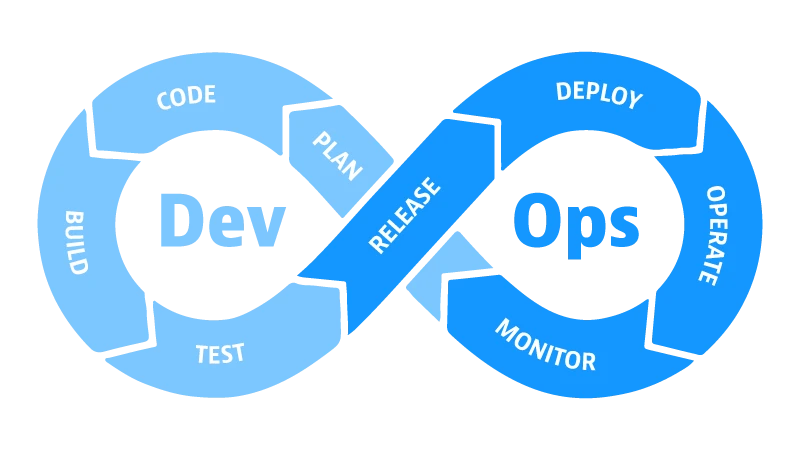What is a DevOps Engineer?
Traditionally, IT roles have been siloed, with software developers and IT operations teams working in separate, often isolated departments. This structure can lead to inefficiencies, miscommunications, and slower release cycles. DevOps practices were created to overcome these challenges, and in turn, the DevOps Engineer role was created. The DevOps Engineer bridges the gap between development and operations, promoting collaboration, mindset changes, tools, and practices to improve the software development cycle.

DevOps Lifecycle
What Do DevOps Engineers Do?
A DevOps Engineer wears many hats, all aimed at streamlining software delivery. They work to integrate development and operations, ensuring that the software development lifecycle is smooth, efficient, and effective. A DevOps Engineer is required to have technical expertise in many areas, including a deep understanding of various tools and practices to manage the software development lifecycle effectively. Beyond technical skills, DevOps Engineers play a crucial role in advocating for DevOps practices and fostering a collaborative culture within their organizations. This requires DevOps Engineers to have strong interpersonal skills.
DevOps Engineer: Roles and Responsibilities
Collaboration and Communication
DevOps Engineers facilitate better communication between software developers, IT operations, and other stakeholders. They create a collaborative environment where team members share responsibility for the software’s lifecycle, from development to deployment and maintenance.
Continuous Integration and Continuous Deployment (CI/CD)
Implementing and managing CI/CD pipelines and tools is a key responsibility. These pipelines automate code integration, testing, and deployment, enabling frequent and reliable releases. Tools like Jenkins, GitLab CI, and Travis CI are commonly used.
Automation
Automation is crucial in the DevOps philosophy. DevOps Engineers automate repetitive tasks to increase efficiency and reduce human error. This includes automated testing, deployment, and infrastructure provisioning.
Infrastructure as Code (IaC)
Using tools like Terraform and AWS CloudFormation, DevOps Engineers use “Infrastructure as Code” (IaC) to automate system configurations and operational tasks. The use of code makes configuration changes repeatable and standardized.
Monitoring and Logging
DevOps Engineers set up monitoring tools to track performance and health metrics and implement logging solutions for troubleshooting and optimization. Common tools include Datadog, PRTG, and Prometheus.
Security
Security is integrated into every stage of the development lifecycle. Known as DevSecOps, this practice involves identifying potential threats and implementing measures to mitigate them, ensuring applications are both efficient and secure.
Cultural Shift
DevOps Engineers promote a culture of continuous improvement, shared responsibility, and transparency. This cultural change is essential for the successful adoption of DevOps practices and the long-term success of the organization.
-6c62077fa9d60e5f07f928ce73c9b734.png)
DevOps Engineer Responsibilities
The DevOps Engineer plays a crucial role in software development. By fostering collaboration, automating processes, and championing DevOps practices, they ensure that software is developed, tested, and deployed quickly and reliably. As the tech industry continues to evolve, the demand for skilled DevOps Engineers will only grow, making them indispensable to every organization.